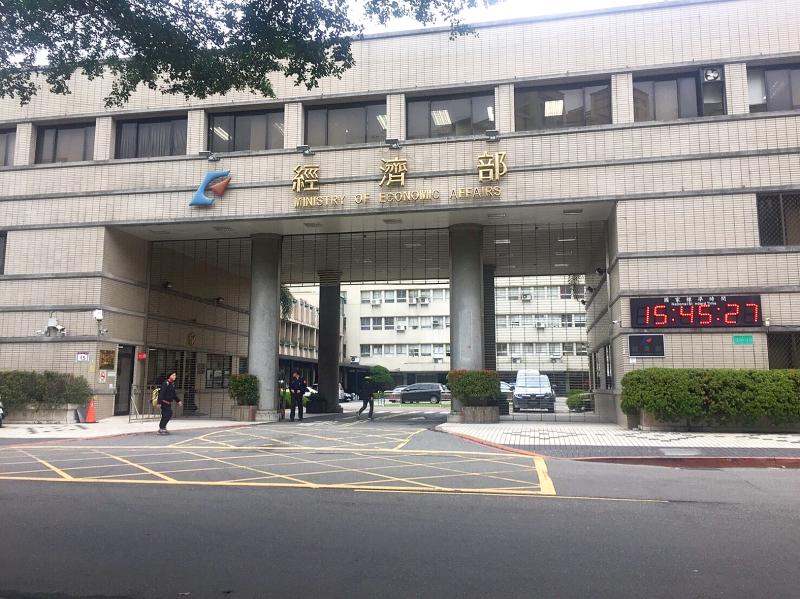The InvesTaiwan Service Center last week approved an application by Sigurd UTC Corp (矽格聯測) to invest NT$2.9 billion (US$103.4 million) to add clean rooms and expand the smart production lines at its plants in the Hsinchu Science Park (新竹科學園區), the Ministry of Economic Affairs said.
The investment by Sigurd UTC, which focuses on chip packaging technology development and wafer testing services, comes as more semiconductor companies are expanding manufacturing capacity thanks to increasing demand.
“A realignment of the global supply chain triggered by US-China trade tensions, opportunities for remote working and distance learning created by the COVID-19 pandemic, and the future of 5G applications are all driving forces in the development of the semiconductor industry,” the ministry said in a statement on Friday.

Photo: Lin Jin-hua, Taipei Times
Sigurd UTC expects the new investment to increase its market share in the semiconductor packaging and testing business, the ministry said, adding that the investment would create 182 job opportunities.
Sigurd UTC was known as UTAC Taiwan Corp (聯測科技) before it was acquired by Sigurd Microelectronics Corp (矽格), which announced the NT$4.62 billion purchase in January and completed the deal in April. In 1995, Singapore’s UTAC Holdings Ltd established UTAC Taiwan as its local chip testing arm.
Sigurd UTC has production facilities at the Hsinchu Science Park and receives orders from integrated device manufacturers, pure-play wafer foundry firms and fabless design firms, the company’s Web site says.
Thanks to the sales revenue contributed by Sigurd UTC, parent company Sigurd Microelectronics on Friday reported consolidated revenue of NT$1.53 billion for last month, up 33.16 percent from a year earlier and its third-highest monthly total, bringing its overall revenue for the third quarter to a record NT$4.68 billion, up 41.95 percent from a year earlier.
Sigurd UTC was one of six local companies that the InvesTaiwan Service Center last week approved to join the government’s three major investment incentive programs, the ministry said.
The center also approved Sushi Express Co Ltd’s (爭鮮) application to invest NT$1.5 billion at the Taichung Industrial Park (臺中工業區), as the conveyor-belt sushi chain operator plans to build a new plant with intelligent production lines, the ministry said, adding that the firm also operates production sites in New Taipei City, Taichung and Kaohsiung.
The others were Asiatic Fiber Corp (豪紳纖維科技), Master Transportation Bus Manufacturing Ltd (成運汽車製造), Janseen Business Co Ltd (至信實業) and Lu Kang Electrify Co Ltd (鹿港電器), the ministry said.
As of Friday, the center had approved 1,015 applications from Taiwanese businesses to invest a total of NT$1.36 trillion through the three incentive programs launched in early 2019, the ministry said.
The incentive programs provide participating companies with assistance for financing, taxation, land, utilities and labor, and the investments pledged so far are expected to generate 115,011 jobs, it said.
Another 52 firms are awaiting approval to invest, it added.

In Italy’s storied gold-making hubs, jewelers are reworking their designs to trim gold content as they race to blunt the effect of record prices and appeal to shoppers watching their budgets. Gold prices hit a record high on Thursday, surging near US$5,600 an ounce, more than double a year ago as geopolitical concerns and jitters over trade pushed investors toward the safe-haven asset. The rally is putting undue pressure on small artisans as they face mounting demands from customers, including international brands, to produce cheaper items, from signature pieces to wedding rings, according to interviews with four independent jewelers in Italy’s main

Japanese Prime Minister Sanae Takaichi has talked up the benefits of a weaker yen in a campaign speech, adopting a tone at odds with her finance ministry, which has refused to rule out any options to counter excessive foreign exchange volatility. Takaichi later softened her stance, saying she did not have a preference for the yen’s direction. “People say the weak yen is bad right now, but for export industries, it’s a major opportunity,” Takaichi said on Saturday at a rally for Liberal Democratic Party candidate Daishiro Yamagiwa in Kanagawa Prefecture ahead of a snap election on Sunday. “Whether it’s selling food or

CONCERNS: Tech companies investing in AI businesses that purchase their products have raised questions among investors that they are artificially propping up demand Nvidia Corp chief executive officer Jensen Huang (黃仁勳) on Saturday said that the company would be participating in OpenAI’s latest funding round, describing it as potentially “the largest investment we’ve ever made.” “We will invest a great deal of money,” Huang told reporters while visiting Taipei. “I believe in OpenAI. The work that they do is incredible. They’re one of the most consequential companies of our time.” Huang did not say exactly how much Nvidia might contribute, but described the investment as “huge.” “Let Sam announce how much he’s going to raise — it’s for him to decide,” Huang said, referring to OpenAI

The global server market is expected to grow 12.8 percent annually this year, with artificial intelligence (AI) servers projected to account for 16.5 percent, driven by continued investment in AI infrastructure by major cloud service providers (CSPs), market researcher TrendForce Corp (集邦科技) said yesterday. Global AI server shipments this year are expected to increase 28 percent year-on-year to more than 2.7 million units, driven by sustained demand from CSPs and government sovereign cloud projects, TrendForce analyst Frank Kung (龔明德) told the Taipei Times. Demand for GPU-based AI servers, including Nvidia Corp’s GB and Vera Rubin rack systems, is expected to remain high,